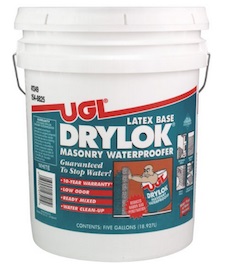Basement Walls Flaking
Judy Lazo has basement walls that are flaking away in Haddon Township, NJ. She can tell the story better than me;
"I own a home that my ex and I bought in 1997. There was never a problem with water in the basement and still isn't. There is a french drain and sump pump. Around 1999, my ex had the walls painted with Drylok. Now the walls are brown and black and have efflorescence on them.
Some places it's flaking off and you can almost stick your finger in a little. I've been told no mold. How can I get the paint off so the walls can breathe again and not do this?"
Here's my autopsy on the situation:
Judy, count your blessings that you don't have a liquid water problem in your basement. Many people do.
You do have a condensation problem caused by the cool basement walls and the humid air found in basements. That's what's causing the brown and black mold you see.
Many people don't stop to think that basements are really in-ground swimming pools that yearn for water. Water in the soil is constantly trying to get into your basement.
The flaking is caused by this moisture - vapor pressure - that's actively trying to gain entrance to your nice dry space. You can ensure this never happens when you build a home by spraying a rubberized asphalt waterproofing compound on the new foundation. Couple this with a fantastic drain tile system that drains, by gravity, to a low spot on your lot should it be available and you have a dry basement for hundreds of years.
In your case, it's nearly impossible to do this after the house is built and backfilled. It can be done, but it's very expensive.
 Your ex could have done a poor prep job before he painted on the DryLok. That alone might be the problem and it's not sticking well.
Your ex could have done a poor prep job before he painted on the DryLok. That alone might be the problem and it's not sticking well.
But the presence of efflorescence tells me that you do have water vapor that's passing through the foundation wall. That can, and will, push off DryLok that's been applied perfectly.
My advice is to take a pressure washer and blast off the DryLok and get the foundation surface perfectly clean.
I'd then do nothing for months. You want to see if the efflorescence continues and you want to see if you still have any flaking.
You can, after the wait period, apply cement stucco to the walls, but the efflorescence may continue. You'll never stop the mold and mildew until you dramatically lower the humidity in the space.